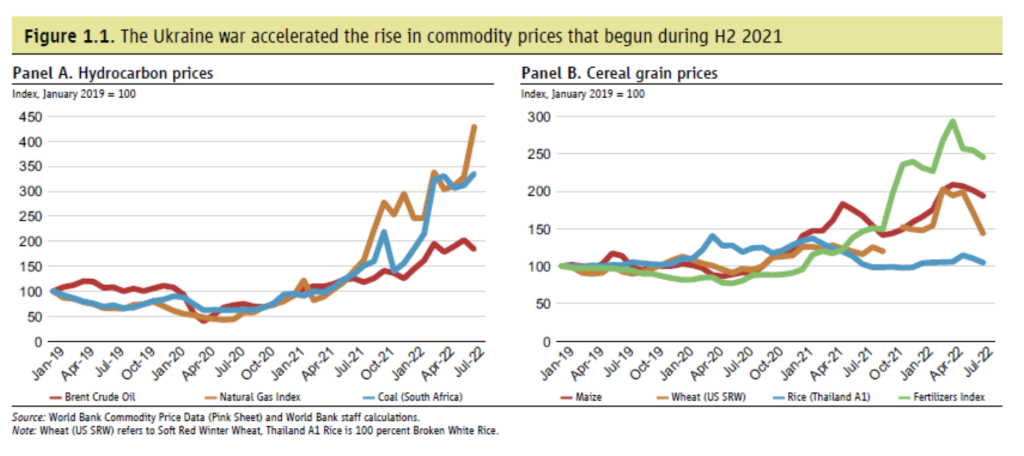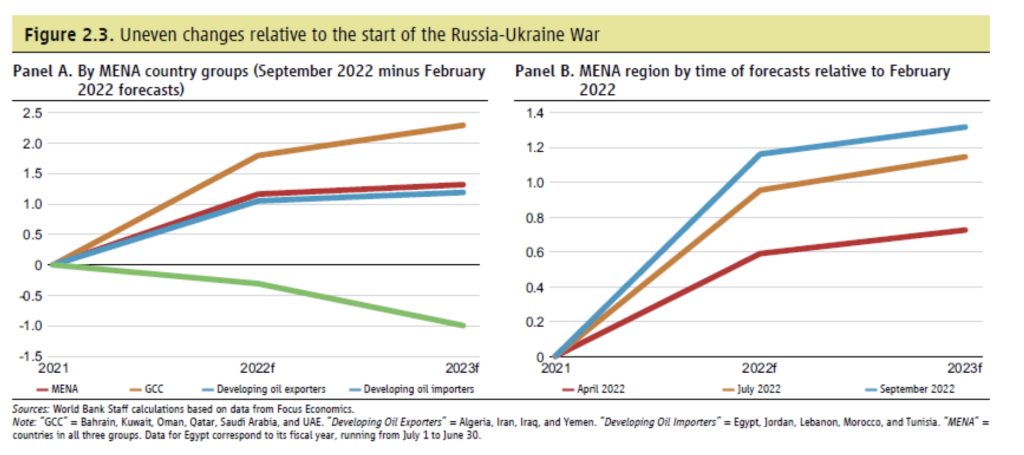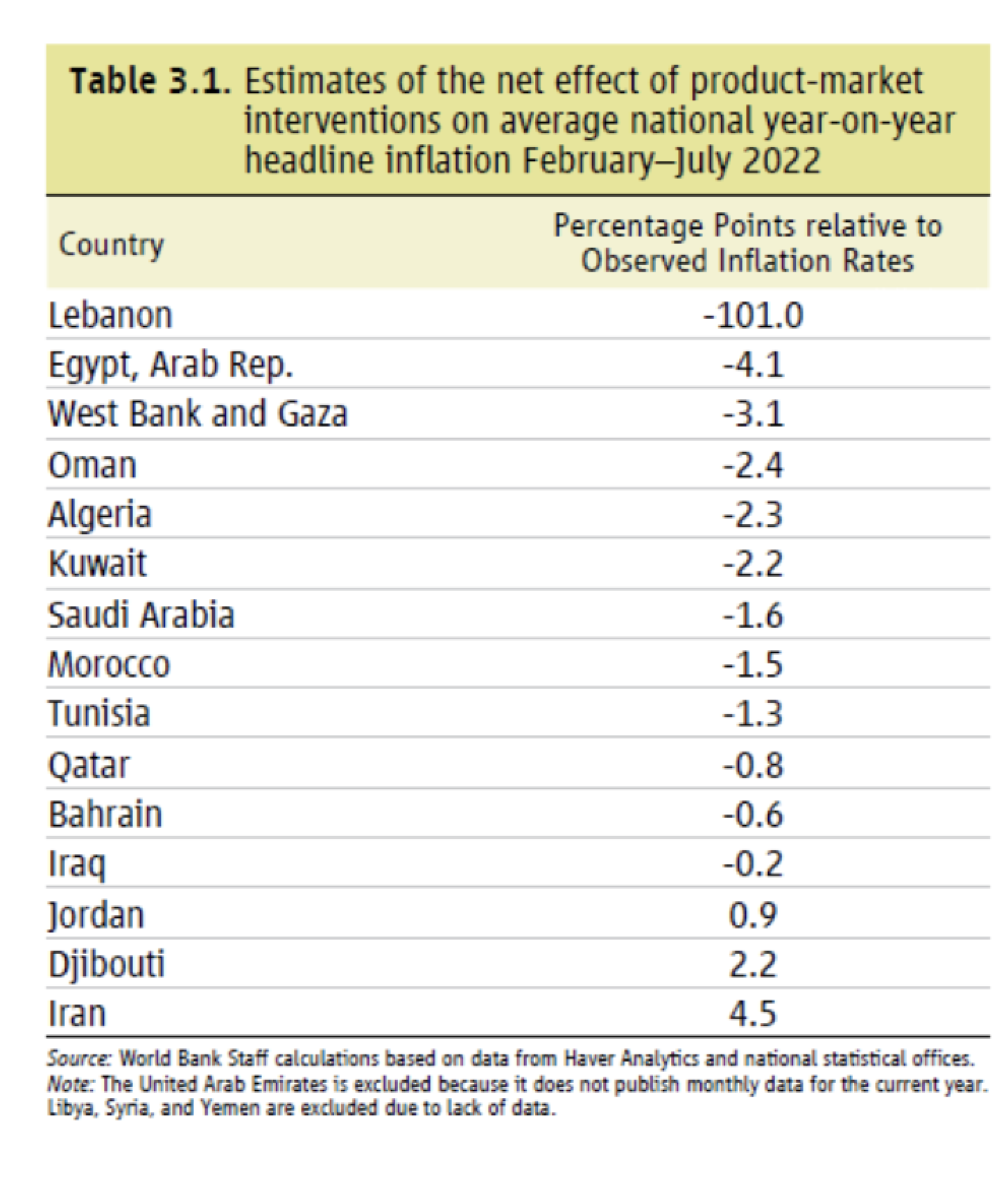This report on the Middle East and North Africa (MENA) Economic Outlook examines: the economic environment globally and in the region; takes a detailed look at what better governance would mean for the region; and how it can be achieved.
Overview
Both Russia and Ukraine are major exporters of fertilizers, the outbreak of the war in Ukraine in February 2022 made the prices of food, energy and fertilizers higher (Figure 1.1), disproportionally affect the poor and threaten food security.

Disruptions in the delivery of Russian oil and natural gas led to a spike in global prices for both commodities. As agriculture and hydrocarbon commodity prices rose, prices paid by consumers for food and energy continued to increase. Just before the war, the consensus forecasts from September 2022 reflect an expected average increase of 1.2 percentage points from 2021 (Figure 2.3) in MENA countries.

Policies
Although inflation is higher in MENA than it was a year ago, it is lower than in other EMDE regions. It is also lower than in the United States and Europe. This is because, MENA countries employed policies that reduced the amount of the higher global prices for food and fuel that were passed through to the prices their consumers paid. Policymakers in MENA intervened in product-markets—using such tools as price controls and consumption subsidies—to make the domestic price of specific tradable goods, such as food and energy, less than the global price. Some governments also sought to ease the burden of rising global prices for energy and food on poorer households by directly sending cash to those households. Evidence suggests that cash transfers are a fiscally more efficient way of helping those in distress. Citizen Engagement (CE), social protection and active labour market programs can play an important role in transitioning workers and their households out of poverty and into sustainable livelihoods.
Rising debt vulnerabilities for the developing oil importers
Since the start of the Ukraine war, domestic interest rates for developing oil importers have increased markedly—as have their market-based bond yields. Some of these countries could fall into debt distress and risk having to restructure their debt. However, research shows that stronger governance correlates with a lower risk of debt default. Strengthened governance and institutional reforms to improve accountability and transparency can help countries manage their fiscal and debt policies. For example, weak land governance not only prevents efficient use of land, but is also costly, holds Middle Eastern and North African economies back, and inhibits strategic decisions about trade-offs needed to ensure sustainable land use while responding to population needs such as housing and food security.
Table 3.1 presents the estimated net impact of product-market policies implemented since the onset of the war in Ukraine.

The role of transparency and accountability
Improved transparency and accountability can help the MENA region in many ways beyond better debt management, good governance can mean different things in different sectors of the economy. For example, improving data openness, with its implied benefits in terms of better resource targeting, planning, and evidence-based policies, could be achieved with something akin to a stroke of a pen.
| Year of publication | |
| Publisher | International Bank for Reconstruction and Development / The World Bank |
| Geographic coverage | North AfricaMiddle East |
| Originally published | 10 Oct 2022 |
| Related organisation(s) | World Bank |
| Knowledge service | Metadata | Global Food and Nutrition Security | Food security and food crises | Food price crisisSafety net |
| Digital Europa Thesaurus (DET) | inflationwar in Ukraineprice of agricultural produceprice of energyagricultural traderesilienceeconomic policyeconomic analysispolicymakingVulnerable groups |
